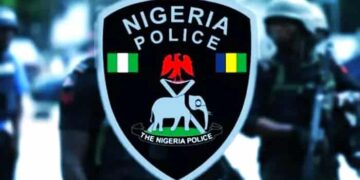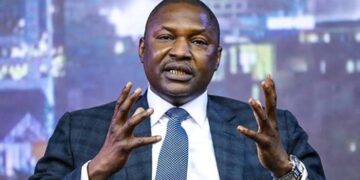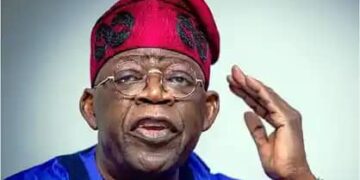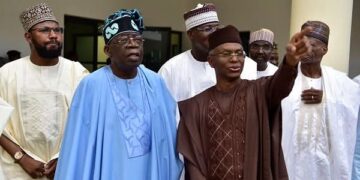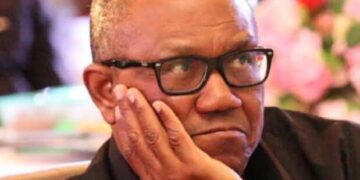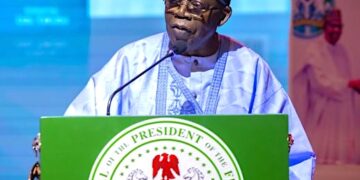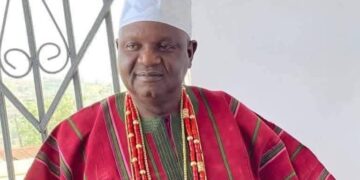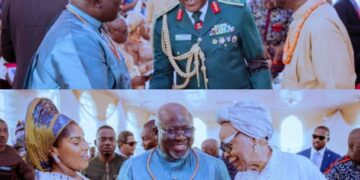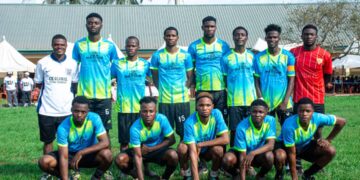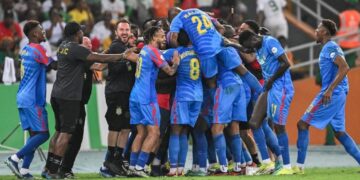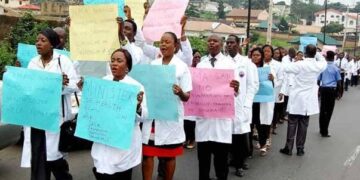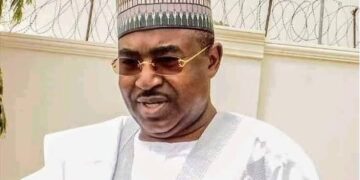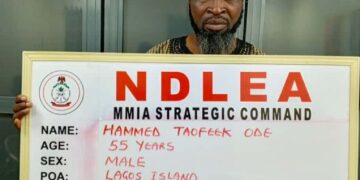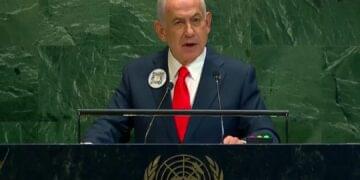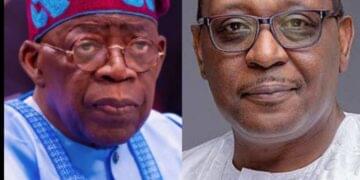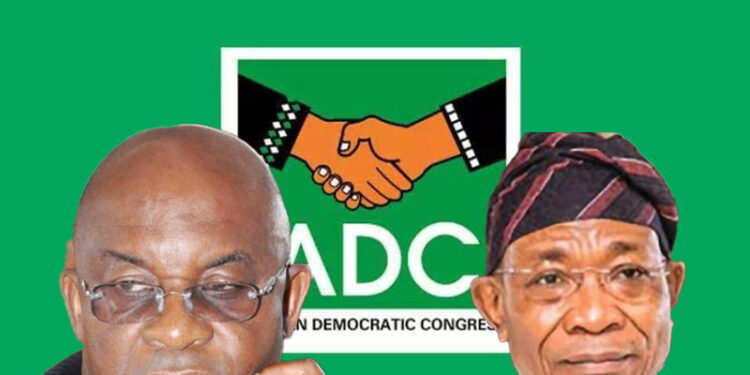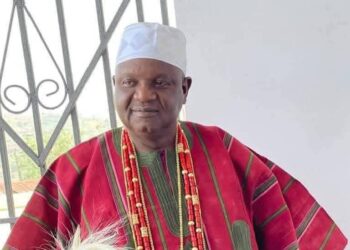A few weeks back, Nigerians witnessed the “rebirth” of an association which some people believe will tilt the political space in 2027. The National Coalition Group, populated by many politicians whose resumes are as rich as the country’s democratic odysseys, coalesced at the Yar’adua Centre in Abuja’s Central Business District after being locked out from a popular hospitality facility in Asokoro, under some unclear and unconvincing reasons. Not minding the short notice about venue-shift, the number of people who made it to the Centre, which is about 7 kilometers from the earlier scheduled venue was largely surprising. The entire space within the iconic Centre; which by the way is arguably the capital city’s preferred venue for national and regional events was literally consumed by politicians and personalities of different linkages, varied persuasions, and generations. The conviviality of the occasion was electrified with hugs, handshakes, and back slaps. Not forgetting the serial applause, thrills and glitz which added colour and pomp to the frenzy atmosphere.
The political solemnization was the fallout of months of continuous interactions, intentional deliberations, and robust extrapolation of ideas and thoughts. From reports, several meetings; private, open, selected, and restricted were held in Abuja, and a few other cities across the country. Following the blitzkrieg and sustained public interest in the activities of the Coalition, many people made different suggestions and speculations about the vehicle to be used in achieving its purpose. Amid conjectures and conclusions, prognosis and postulation, the African Democratic Congress, (ADC), was announced as the official platform of the Coalition. Justifying this, a major stakeholder in the Group who preferred anonymity confirmed that, “ADC was chosen as a result of strategic alignment, and more so, it met the vision, and other criteria of the Coalition.” Some analysts believe that as the Group morphed into the “new ADC,” it may present a noticeable shift in the polity.
High-flying personalities whose names and images are almost permanent fixtures in the minds of Nigerians were at the platform-naming event. The former vice president, Atiku Abubakar led a team of other past serial public officials including Nasir El’Rufai; David Mark; Rotimi Amaechi; Peter Obi; and John Oyegun. Erudite legal luminary, and former Edo state Governor, Oserheimen Osunbor; immediate past Attorney-General of the Federation, Shehu Malami; former Secretary to the Government of the Federation, Babachir Lawal; former Imo state Governor, Achike Udenwa; former Kogi state Governor, Idris Wada, and many others that have occupied different positions in the legislative and executive arms of government graced the occasion. The event could best be described as a demonstration of the Group’s readiness to seize power from the ruling party, All Progressives Congress, (APC) in 2027.
To underscore its determination, Mark, Rauf Aregbesola, and Bolaji Abdullahi were named as the National Chairman, National Secretary, and National Publicity Secretary, respectively. These appointments are on the interim. Recall that Mark was a two-term President of Nigeria’s Senate from 2007 to 2015. Aregbesola, a former loyalist of President Bola Tinubu who served as his Works Commissioner in Lagos, was a former two-term Governor of Osun state, and the immediate past Interior Minister under the Buhari administration. Abdullahi, an award-winning journalist, and former political associate of one-time Senate President Bukola Saraki was a former Education Commissioner in Kwara state; former Minister of Youth Development, as well as Sports under Goodluck Jonathan.
Described variously as a show of might, public display of capacities and huge followership, the Group seems resolute to re-write Nigeria’s democratic history. Captured in different words, the Group; through its Leaders spoke of their readiness to emplace a new party in power by the end of the first quarter of 2027. From Atiku to El Rufai, Amaechi, Mark, Obi, Aregbesola, Abdullahi, and many others; either at the event-proper or sidelines, their respective comments elicited widespread applause. The enthusiastic gathering which comprises leaders, associates, and loyalists from the PDP, APC, and few other political parties responded heartily to the encouraging lines from each speaker. Indeed, the pump-chesting, tough-talking, and confidence-boosting remarks resonated with the vast majority of attendees. Amid clappings, exclamations, and ecstasy, there were continuous echoes of the party’s slogan which vibrated the hall.
As the gathering repeatedly chorused ADC, the thought of an aviation company that had the same alphabets came to mind. Founded in 1984 by Captains Babajide Alakija, Mfom Udom, and Augustine Okon, it started flight operations in January 1991. ADC, ruled the Nigeria and West Africa airspace with regular flights from Lagos to Calabar, Port Harcourt, Abuja, Kaduna in Nigeria; and neighbouring Liberia, Sierra Leone, Ghana, Guinea, and Guinea Bissau. Headquartered in Ikeja-Lagos, it became the first indigenous airline quoted on the Nigerian Stock Exchange in 1994. ADC grew rapidly, such that by 1996, it controlled over 40 percent of Nigeria’s air traffic, and had 7 aircraft in its fleet. The airline was to the aviation sector in the 1990s and early 2000s what the Air Peace represents presently. Sadly, following a few tragic incidents, and unfortunate developments, the ADC was suspended in 2006, and subsequently ceased from operations in 2007 by aviation authorities.
Somehow, there seems to be a similarity between the two ADC. The aviation ADC was conceptualized, and started by the trio of Alakija, Udom, and Okon who were former staffers of the defunct Nigerian Airways. Disappointed by the dwindling operations of the national carrier, buoyed by nationalism, and the resolve to offer a professionally-managed airline, the three visionaries braved all odds to start the ADC. On its part, the “new” ADC, is an assemblage of some former office holders – governors, ministers, heads of agencies, top officials of different political parties, and a few others. The conveyance point of the coalition group is their respective and collective anger with the present state of the nation. Typical of every political association, they pride the ADC as the “go-to” party for every Nigerian that is not only “angry” with the present realities but passionately desires remarkable changes after the 2027 general elections.
Yes, 2027 is about 2 years away, and the political terrain may still witness varied degrees of twists and turns. However, the recalibration of the ADC by the entry of the coalition group is good for democracy. Aside from being a positive step, it aligns with democratic tenets which encourage the right of citizens to free association, and the pursuit of collective aspirations. Unlike other forms of government, it allows individuals and groups to freely express their respective views, interface with people, and promote their varied ideals. In an earlier piece, ” *Ghana, Raising The Bar Of Democracy In Africa* ,” *published in December 2024,* *the writer reiterated that, “true democracy can only thrive where there is credible opposition that can effectively and efficiently check the ruling party.”* In a multi-party democracy like ours, it is imperative for the electorates to have many options to choose from. Divergent opinions, and dissenting voices will stimulate robust public debates, increase voter awareness about issues, and deepen national consciousness.
Given the public service careers and political profiles of some of the people in the “new” ADC, they are expected to give the APC healthy competition. The level of confidence and assurance exuded by their Leaders has been sources of inspiration to other members. For some analysts, the chances of the ADC in 2027 may be prospective if the economic and social realities in the country subsist. True, the pervading poverty, corrosive hunger, escalating hardship, and other underdevelopment indices that are affecting many Nigerians has, somehow given the ADC look-in. The party has been latching on this strategically, hoping to sway popular opinions and deepen public perception against the ruling party. From media reports, it appears there are deliberate efforts towards poaching influential politicians in other parties to the ADC. Names of some serving Governors and Legislators, as well as stalwarts in the APC, PDP, and a few other parties are randomly mentioned.
Considering the peculiarities of our politics, the ADC will benefit from developments that may happen across parties before 2027. As political nomads, carrying the “passport” of a party with “visa” to others, many politicians oscillate at will as they deem fit. Noting the unpredictability of primaries, it will not be surprising if politicians explore ADC as the “special purpose vehicle” to further their aspirations in 2027. Undeniably, there are measures taken by the ADC that will shore up its visibility, and possibly attract more membership. To every dispassionate observer, advocacy is one area the party has shown promise. Abdullahi, the spokesman is leveraging on his varied backgrounds and experiences to ingeniously engage the government on various issues of national importance. Though there are more grounds to cover, but the party deserves commendation for calling out the APC; when the PDP, LP, and a few other parties are almost prostates. However, time and chance will determine how this is sustained, and reveal the true values of the party when storms come.
Many people believe that the chances or otherwise of the ADC’s relevance in Nigeria’s polity hinges on many factors, that are beginning to show forth. There are little whispers among some members of alleged favouritism and pandering towards a group. Not forgetting growing concerns about the purportedly planned hijack of the party’s structures, and positions by a few leaders. How about the continued talks that the party is crafted for the presidential aspiration of Atiku in 2027? Though Abdullahi said, “this is not an Atiku coalition ….. the ADC is not built on anybody’s ambition,” he may have to do more in changing the narrative that has taken a life of its own among party faithful and in public discourse. How will the party’s leadership resolve the Obi conundrum? The confusion and lack of clarity about his membership, and alleged “go-back” talks with the PDP presents an emerging dilemma for the ADC. Amid El Rufai’s suspension for 30 years by a faction of the SDP; which has a tinge of cynicism, his (and a few others) delayed formal declaration are not positive signals.
The ADC, as presently constituted must do everything legitimate to uphold the spirit of unity above inordinate ambitions. Rein in the personal egos, and rigid posturing of some of its leaders towards aligning with the party’s mission, values, and mandate. It is absolutely necessary for the Mark-led executive, and other key members of the Coalition Group to explore result-driven initiatives towards resolving disagreements with Dumebi Kachikwu (ADC 2023 presidential candidate), and other aggrieved members. Every garment of arrogance, and thoughts of “they don’t matter” may spell doom for the party if realistic reconciliation with all and sundry is not achieved. Perhaps, the ADC should note that without the consideration, and application of these strategies, and a few others, it will be difficult for Nigerians to take them seriously. Massive sloganeering, beautiful billboards, flowery flyers, and sonorous oratory at campaign venues by the party and leaders may not translate to gaining voters franchise. The ADC must put its house in order as fast as practicable.
*BOLAJI AFOLABI, a Development Communications specialist was with the Office of Public Affairs, The Presidency, Abuja.

